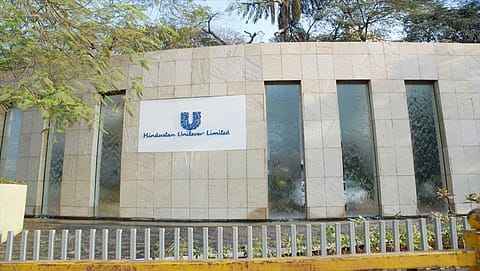HUL to focus on cost-saving, hike prices gradually
FMCG major bets on premium D2C business with launch of digital-only brands as net profit grows 9% in Q2.

With close to 1 billion Indians getting vaccinated and Covid-19 restrictions being lifted in most states, life is gradually returning to normalcy. Indian consumers have stepped up their discretionary spends on out-of-home food consumption, and have started buying beauty and skincare products just as they did pre-pandemic. Unlike in the past few quarters when discretionary categories such as ice-cream and colour cosmetics were a huge let down for the FMCG giant, Hindustan Unilever’s (HUL’s) Q2FY22 has seen a bounce back in these categories. A significant portion of the 10% growth in the company’s beauty and personal care division came on the back of colour cosmetics and other skincare products, while ice-cream contributed to 7% growth in the food and refreshment business. Tea also grew on a strong base and strengthened its market leadership.
The FMCG giant reported revenue of ₹10,516 crore in the second quarter of FY22, up 11% year-on-year (y-o-y). Profits grew 9% to ₹2,187 crore during the quarter, while EBITDA margin stood at 25%. However, overall volume growth was a subdued 4%, compared with 9% in the previous quarter. “The unprecedented rise in commodity prices, inflation as well as the persisting fear of Covid and job losses will have an impact in the near term,” said Sanjiv Mehta, chairman and managing director, HUL.
In an inflationary environment when consumption takes a beating, the company, said CFO Ritesh Tiwari, will try and save costs across the organisation and take calibrated price hikes. “However, driving consistent and sustainable growth, increasing private consumption and investing in market development will always remain the cornerstone of our strategy.”
“Our effort will be to keep consumers within our fold. We will focus on costs, portfolio play and straddle across price points,” added Mehta. While focus on lower price points packs is a given in an inflationary market, HUL has also stepped up its premium D2C business with the launch of digital-only brands such as Love Beauty Love Planet, Simple and Baby Dove.
Around 15% of the company’s turnover is captured digitally. “Our digital business is galloping at a huge pace. We are building digital brands and are getting ready to face not just existing competition, but new-age competitors as well,” said Mehta.
A large part of HUL’s volume growth comes from rural markets and unlike previous quarters where rural growth was robust, this time it was slower than Urban India. “Urban consumption is picking up from a low base and rural consumption has moderated from a high base,” said Mehta.
He, however, was cautiously optimistic. “We are extremely pleased with our performance. Our EBITDA margins are healthy and we have gained market share. Close to 1 billion Indians are already vaccinated and all these factors make us optimistic. We are cautious because of inflation, as that is unprecedented.”